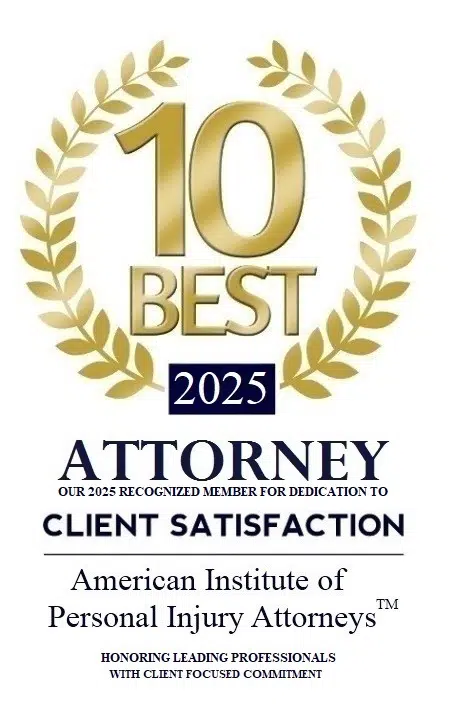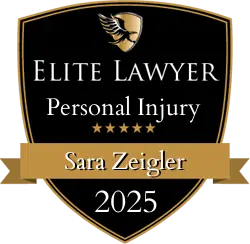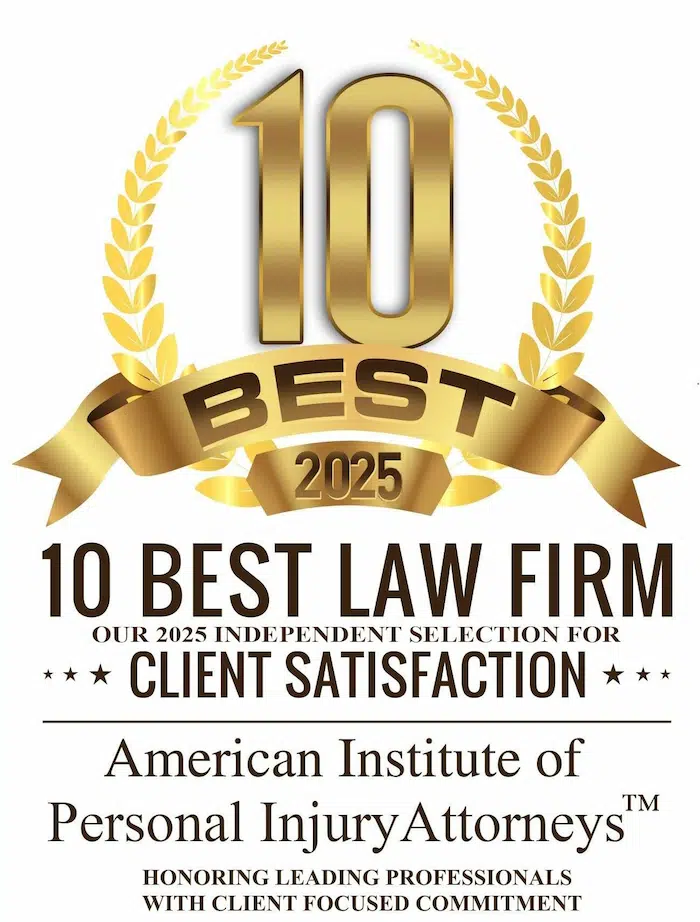Getting into a car crash can be a scary experience, especially if it wasn’t your fault. Knowing what to do after a car accident is critical for ensuring you win your car accident case and get compensation for your pain and suffering. Read on to learn what to do after a car accident that is not your fault.
1. Get Yourself Out of Harm’s Way
Before learning what to do after a car accident that is not your fault, take care of your safety by getting yourself out of harm’s way.
If your car is in the middle of the road, you risk having distracted drivers hit you. Drive to the side of the road, away from traffic. If your car is totaled, and you can’t move it out of the road, get out of the car and walk to the side of the road.
2. Check Yourself for Injuries
Next, check yourself for injuries. Realize that you may be in shock, making you oblivious to pain. Look for blood, broken bones, head injuries, sprained ankles, and bruises. Drink some water and try to calm down and clear your head so you can proceed.
3. Call 911
One of the first things you should do is call the police. Calling 911 allows you to report the accident and request medical assistance if necessary. Try to explain to the dispatcher what happened.
They may ask you about your injuries and send an ambulance with paramedics who will check you for damages and take you to the hospital if necessary. Also, ask for a police officer, so you can get a police report. It will be crucial when providing evidence of the other driver’s fault.
Note that you should call 911 while the other driver is still around at the accident scene.
4. Start Documenting Evidence
After requesting emergency assistance, start documenting evidence. When it comes to motor vehicle accidents, it’s crucial to have pictures of the accident scene and proof that it’s not your fault to back up your car accident claim.
Take pictures of:
- The vehicles
- Your injuries, including bruises, blood, etc.
- Anything that may have contributed to the accident, such as obstacles on the road or a tricky intersection without proper traffic lights or signage
While you should start collecting evidence immediately, your car accident attorneys in West Virginia will do much of the evidence gathering. They will compile medical reports documenting your injuries, information from witnesses, police reports, reports from mechanics detailing the damage to your vehicle, and more.
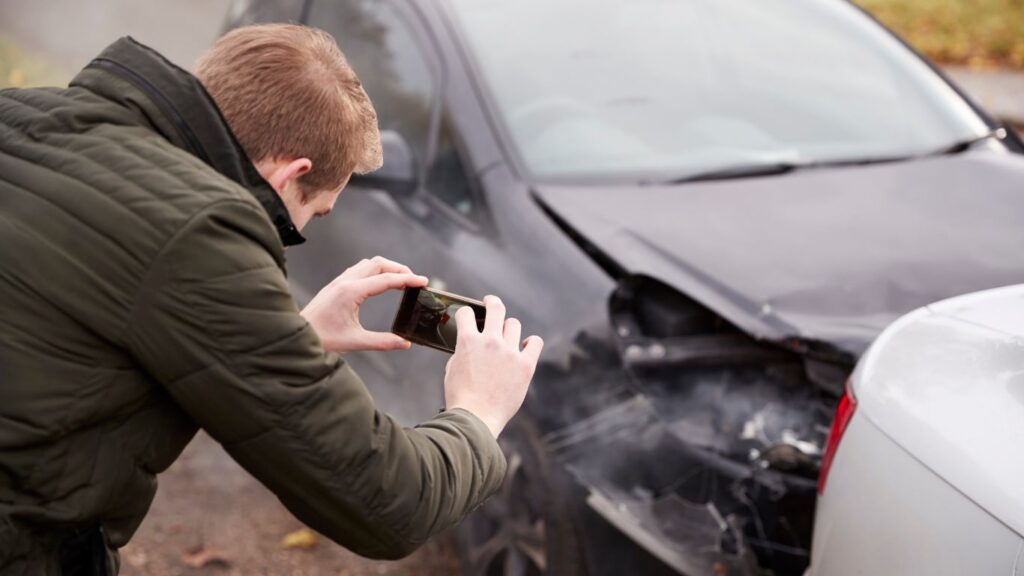
5. Collect Witness Information
While it’s critical to get the other driver’s contact information, you should also get the contact details of any witnesses at the scene. Whether it’s another motorist who stopped to help or a passerby who witnessed the accident, these witnesses can play a crucial role in backing up your claims in court.
Names, phone numbers, email addresses, and even social media handles, can help you contact witnesses later.
6. Inform Your Insurance Company
It’s essential to inform your insurance company about the accident. However, be brief in your report and give as few details as possible. The most important thing to remember is that insurance companies do NOT have your best interests in mind. They aim to pay out as little compensation as possible, and they can use anything you say against you.
Therefore, call a personal injury attorney before talking in detail with your insurance company. If possible, contact your attorney before you talk to the insurance company altogether. A lawyer can speak to your insurance provider or guide you on what to say.
7. Call Roadside Assistance
If your car is totaled, call your roadside assistance company for help. Do not drive your vehicle if it has severe damage or if some safety equipment is not working. For example, don’t drive the car if the blink lights aren’t working.
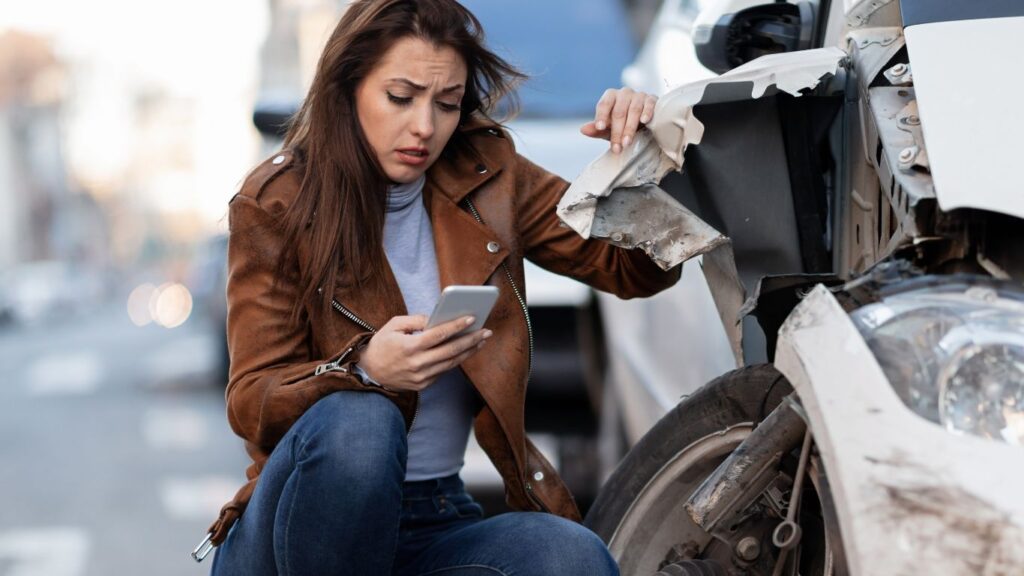
8. Take Your Car to a Mechanic
If your car sustained only light damage and everything is working, you can drive your vehicle and avoid paying extra for a towing company.
Some accidents may only cause cosmetic damage to your car, such as dents, though they still cost money to repair. Note that even if your auto did not sustain any damage, you might still sustain injuries, such as brain trauma due to hitting your head.
Even if you can drive your car safely, it’s still worth getting a checkup at a mechanic as soon as possible. Some components may be loose, for example, and a mechanic will help ensure that your car is safe to drive.
9. Get Medical Treatment
Depending on your injuries, emergency responders may immediately take you to a hospital. However, even if you feel fine, you should still visit a doctor anyway.
Sometimes, you don’t always notice your injuries right away, especially if they are internal. Internal bleeding can be dangerous, but symptoms might not be immediate.
Besides, even if your injuries are minor and can heal on their own, such as minor bruises and cuts, it’s still worth getting a medical report as evidence.
10. Get Legal Help Immediately
Most importantly, enlist the help of West Virginia car accident lawyers straightaway. Depending on the details of the accident, you may be eligible for compensation for the following:
- Pain and suffering
- Lost wages
- Medical bills
- And more
For example, if you can’t go to work due to a sprained ankle, you may be able to recoup your lost wages. Severe injuries, such as those that permanently disable you, are harder to get compensation for because insurance companies try to avoid making those big payouts.
Work With a Lawyer ASAP
Having a law firm on your side will make things a lot more straightforward, as skilled, experienced lawyers know the tricks insurance companies use to avoid responsibility for paying fair compensation. A lawyer also knows how the system works and how to win in court.
We know how challenging it can be to go up against the insurance agencies by yourself. They have prominent lawyers on their side, who they employ to find loopholes to avoid their obligations to you.
It’s very frustrating to have an insurance company stall you, especially when you’re recuperating from a traumatizing experience like a car accident. Leave it up to your lawyer to take care of things for you.
Another reason to avoid delay in contacting a lawyer is so that you don’t go past the statute of limitations for personal injury claims, which is two years as per West Virginia law.
What To Do After a Minor Car Accident?
After minor car accidents, don’t panic. Even if you only sustained minor injuries, you are still entitled to compensation for medical expenses such as your ambulance transportation fee, the ER fee, and injuries such as whiplash. Call a lawyer as soon as you can. It will help ensure you don’t make any mistakes that could hurt your chances of getting the compensation you deserve.
Call Us for a Free Consultation
Many people worry about being able to afford a personal injury attorney, but the reality is that anyone can afford one. Personal injury lawyers usually operate on a contingency fee basis, meaning they only receive a payment if you get compensation.
You can contact us for a free consultation. Tell us more about what happened, and we’ll let you know what kind of compensation you are entitled to and what we can do to help you. We’ll keep you in the loop throughout the process of winning your claim, so you can sit back, rest, and recover.
We can also help with pedestrian accidents, motorcycle accidents, truck accidents, and other personal injury accidents.






